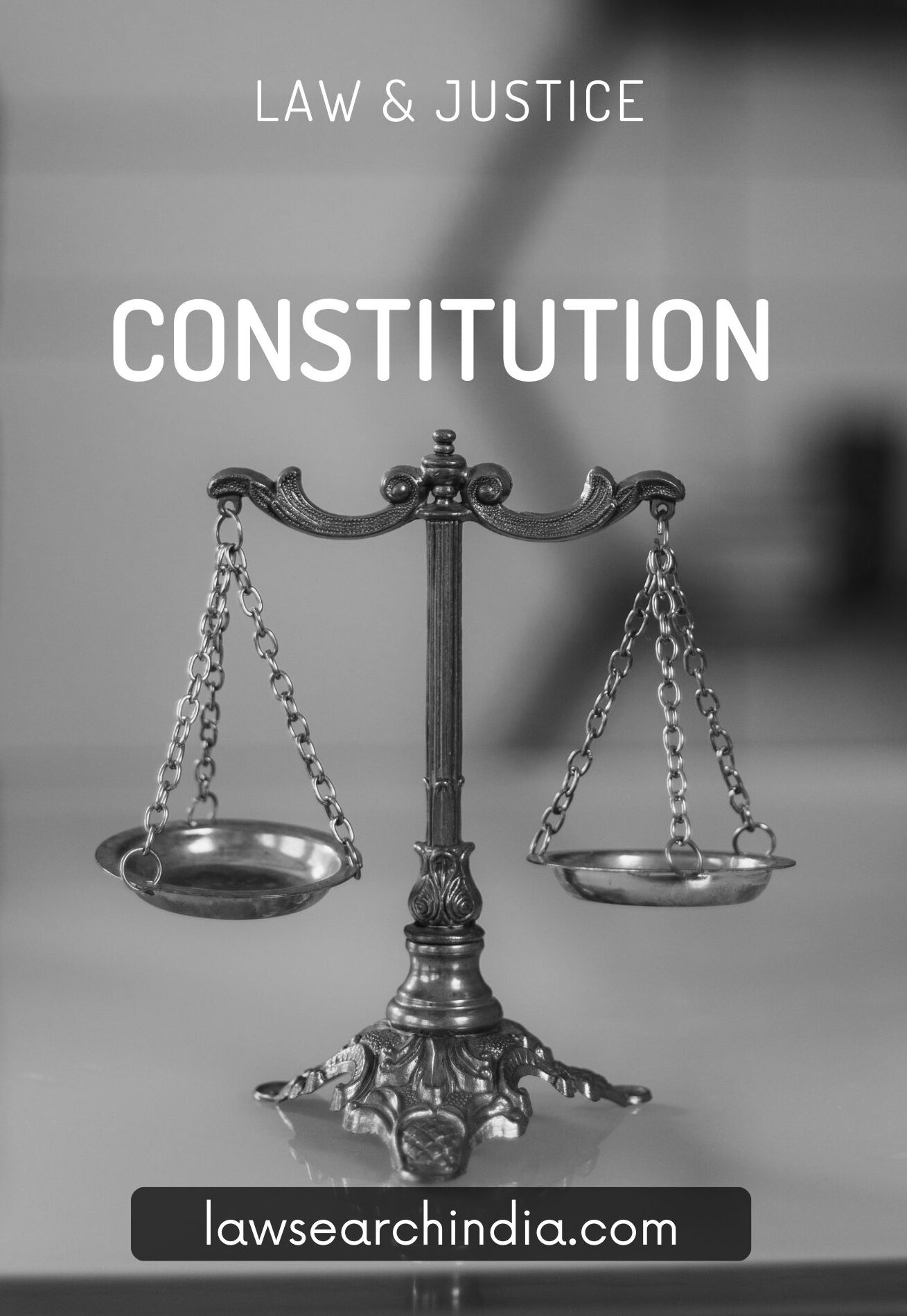
INTRODUCTION:
This blog is pertaining to the power of the court under Article 32 and 226 to award compensation as remedy in writ to the aggrieved person. The issue whether court can exercise power of the extent of awarding compensation under Article 32 and 226 of the Constitution has been dealt by the Hon’ble Supreme Court in various judgments which will be highlighted in the present blog.
ARTICLE 32 AND 226
Article 32 and 226 of Constitution of India is power to Supreme Court and High Court respectively to issue writ, order or direction for the enforcement of fundamental rights. Power under Article 32 and 226 is a constitutional power of the said courts and cannot be overpowered or taken away by passing any ordinary legislation.
Article 32 is “heart and soul” of the Constitution, it is itself a fundamental right to safeguard the rights envisage under part III of the Constitution which is fundamental rights. Supreme court issue writ under Article 32 only against the “state” which is defined under article 12 of the constitution. Article 32 is an original jurisdiction of the Apex court on account of which an aggrieved person can directly approach the said court.
Article 226 is the power of High court to issue writ, order or direction for the enforcement of fundamental rights as well as other legal rights. It is mandatory in nature with regard to enforcement of fundamental rights and it is a discretionary power in case of other legal rights.
However, power under Article 226 is wider than Article 32 as an aggrieved person can approach under Article 32 only in case of violation of fundamental rights, on the other hand, under article 226 one can approach the High Court for the enforcement of fundamental rights as well as other legal rights. Article 32 is a fundamental right whereas article 226 is constitutional right. In case of Bandhua Mukti Morcha vs. Union of India (1984) court viewed that Article 226 power is wider than power of Supreme Court under Article 32 of Constitution.
Power under ARTICLE 32 and ARTICLE 226:
The power under these articles is exercised against the “state” for the enforcement of rights. However, the issue before the court was whether court can pass an order to award compensation while exercising power under these provisions. Though the constitution does not explicitly specify and allow to award the compensation but the supreme court construed Article 226 and 32 to evaluate the said issue.
Whether under writ jurisdiction court can direct state to pay compensation when state or its servant abridges the rights of the aggrieved person. In such cases state takes the defense of sovereign immunity.
What is SOVEREIGN IMMUNITY?
Sovereign immunity is a legal doctrine which protects state from being prosecuted, it basically precludes to initiate any proceeding against the state without the former approval of the state. The relevance of this concept can be found in section 86 of CPC which bars to institute a suit against the foreign state. The reason behind this concept is that the state is acting in the best interest of its citizens therefore the state can not be held responsible and prosecuted for any wrong.
The Supreme Court held that this could be taken as a defense under private law and not public law, and remedy under Article 32 and 226 is public law. The plea of sovereign immunity does not survive while exercising power under writ jurisdiction.
Court in Kasturilal Ralia Ram Jain vs. State of U.P. (1965) 2 Cri LJ 44 court uphold the plea of sovereign liability in case of tortious liability.
Further in Nilabati Behera vs. State of Orrisa (1993) 2 SCC 746 had highlighted the difference between state liability in case of abrogation of fundamental rights and in case of tortious liability. Court in para 14 opined that sovereign immunity has no application in the constitutional scheme, and is no defence to the constitutional remedy under Articles 32 and 226 of the Constitution. (read more)
COMPENSATION as remedy in writ jurisdiction:
Compensation is general remedy under private law however scope of compensation in public law was evolved by the judiciary through its wisdom. There are several precedents wherein apex court analyzed this issue of awarding compensation to the aggrieved person while invoking Article 32 or 226.
Justice P.N. Bhagwati for the first time in Khatri vs. State of Bihar (1981) 1 SCC 627 opined in para no. 4 that:
“4… Why should the court not be prepared to forge new tools and devise new remedies for the purpose of vindicating the most precious of the precious fundamental right to life and personal liberty.
Further Supreme Court brought revolutionary breakdown in the scope of remedy as compensation under public law when a writ was filed under article 32 of Constitution. Supreme Court in Rudal Shah vs. State of Bihar (1983) 4 SCC 141 court has awarded compensation to the petitioner who has been wrongfully detained in custody for 14 years even after acquittal. (read more)
The aforesaid case was only to the extent of power of supreme court under ARTICLE 32 of Constitution further in Nilabati Behera vs. State of Orrisa (supra) court paved the way for compensation remedy by High Court under Article 226 of Constitution. In the said judgment it was observed the significance of Article 21 and also emphasized relief in public law. In paragraph no 31 and 32 court evaluated as under:
31…. The precious right guaranteed by Article 21 of the Constitution of India cannot be denied to convicts, undertrials or other prisoners in custody, except according to procedure established by law. There is a great responsibility on the police or prison authorities to ensure that the citizen in its custody is not deprived of his right to life.
32. The citizen complaining of the infringement of the indefeasible right under Article 21 of the Constitution cannot be told that for the established violation of the fundamental right to life, he cannot get any relief under the public law by the courts exercising writ jurisdiction. The primary source of the public law proceedings stems from the prerogative writs and the courts have, therefore, to evolve ‘new tools’ to give relief in public law by moulding it according to the situation with a view to preserve and protect the Rule of Law.
Another landmark judgment wherein court emphasized on the importance of compensation as remedy for the infringement of fundamental rights. D. K. Basu vs. State of West Bengal: (1997) 1 SCC 416 this case was pertaining to the custodial death, torture, rape which infringes basic human rights and fundamental rights. Court scrutinized that compensation can be granted under public law by the High Courts and Supreme Court and such compensation will be considered in addition to the remedy under private law for the tortious action of the state.
COMPENSATION as remedy in RAPE CASE:
In Chairman, Railway Board & Ors. vs. Chandrima Das & Ors. (2000) 2 SCC 465: wherein court observed that act (rape) of the employee of railway is tortious act and also violative of fundamental right, therefore award of compensation under article 226 of Constitution against the state or its instrumentality is maintainable, irrespective of the fact that the alternative remedy of civil suit for damages is available.
STRICRT LIABILITY & VICARIOUS LIABILITY:
When the act of the state violates the fundamental right or any right under public law such liability is strict liability unlike infringement of rights by the state under private law as the same is vicarious liability. In case of strict liability under the public law the state is held liable irrespective of its intent whereas in case of tortious act of the state or its employees state is vicariously liable to pay compensation.
CONCLUSION:
It could be concluded that compensation can be awarded as a remedy under the public law, irrespective of the fact that alternative, efficacious remedy is available under the ordinary law/private law. Court highlighted that liability of state in contravention of fundamental rights and in case of tortious liability of state is different. Supreme Court and High court have power to award compensation under writ jurisdiction in case of violation of fundamental rights by the state or its instrumentality or its servant as such liability is strict liability and not vicarious liability, therefore the defense of the “sovereign immunity” is also not available. Compensation in writ jurisdiction is a new tool for safeguarding fundamental rights.
